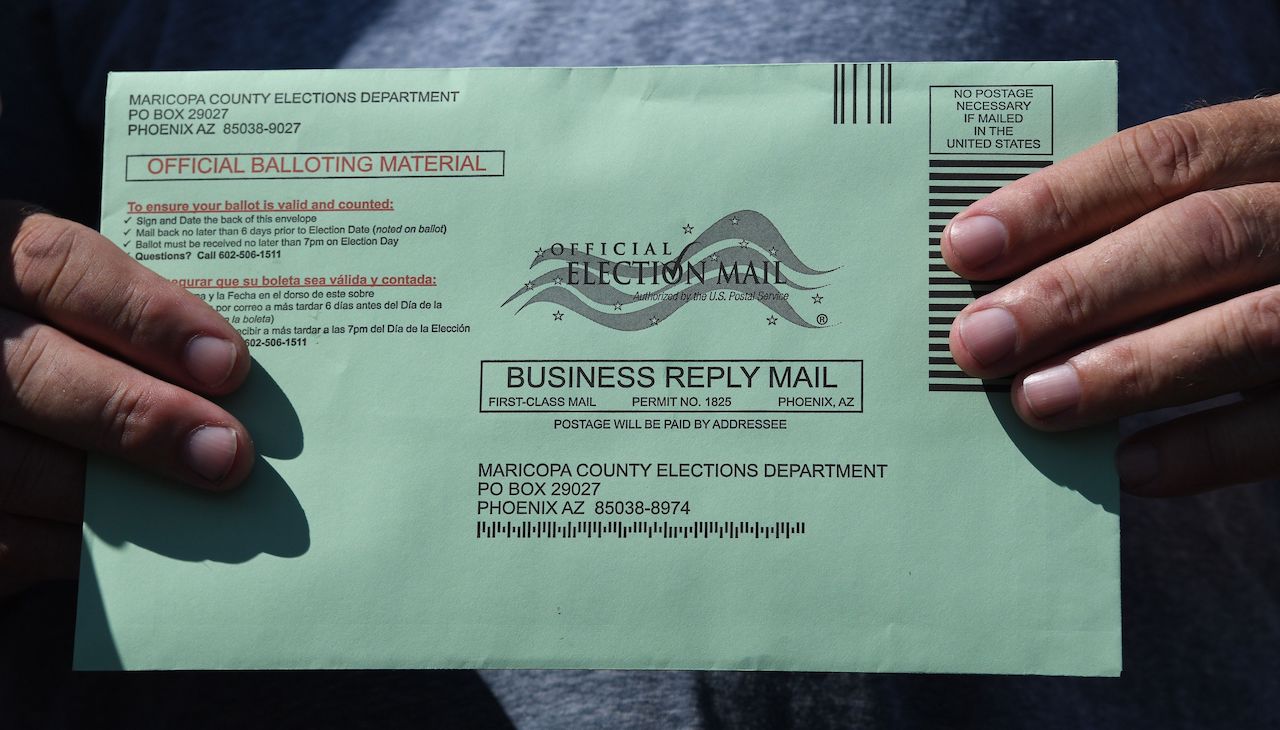
Voto Latino partners with allies to sue Arizona over a voter restriction law
Senate Bill 1260 places severe voting provisions for voters registered in different counties. The lawsuit argues it doesn’t address a real threat.
Voto Latino, a D.C.-based grassroots political advocacy group, came to the defense of transient Arizona residents, retirees, and students after they announced legal action this week over the state’s Senate Bill 1260 SB 1260), a law that penalizes voters and voting rights groups with harsh provisions.
“This law is aimed directly at the Latino community, and it criminalizes efforts to help individual people defend their rights,” said Maria Teresa Kumar, President, and CEO of Voto Latino, in a statement.
Arizona Alliance for Retired Americans and Priorities USA are also plaintiffs in the suit.
Governor Ducey signed SB 1260 into law in 2021, and it is scheduled to go into effect in September 2022.
It empowers county recorders to identify a specific subset of voters deemed ineligible under either undefined or overly broad provisions and have their registration canceled without consent or notification.
It also removes legally registered voters from early ballot casting or vote-by-mail if a county recorder received “credible information,” but does not define circumstances applicable to those cancellations.
According to the lawsuit, Arizona does not provide a workable mechanism for voters to cancel a previous registration preemptively, nor does the state guarantee cancellation upon request to do so.
The voter registration website states voters can update their information and receive an updated voter ID card in 4-6 weeks. Still, it does not specify if the state canceled a previous registration.
Voto Latino argues that the law targets a specific group of residentially transient voters due to unique circumstances, like unstable housing, student populations, and elderly folks who relocate to Arizona for retirement.
RELATED CONTENT
“Politicians in Arizona have piled obstacles in front of the voting booth simply because they don’t like the kinds of voters who want to participate in our elections. That’s not just an affront to democracy; it’s an attack on communities who deserve to have their voices heard on Election Day and to have politicians who are responsive to their needs,” Kumar said.
SB 1260 doesn’t stop there. In the event the state delivers a ballot to the wrong address, the resident must write “Not at this address” and send it back to the county recorder’s office, where they would initiate a new registration if the mail is delivered successfully and on time.
Once the county recorder receives that letter, the person for whom the ballot was intended would be removed from the early voting list.
There are also penalizations for organizations that assist voters without first confirming if there was an address change, thus targeting advocacy groups that handle a large volume of voters not necessarily versed in new legal practices.
The lawsuit argues SB 1260 is an overt attempt to undermine voters under the guise of tackling voter fraud and promoting election integrity. They fear it may have the opposite effect.
“SB 1260 has no rational connection to any legitimate government purpose. It will not improve election integrity or prevent election fraud,” the lawsuit reads, addressing the consequences it could have on diverse and complete voter participation. “Instead, it will severely chill voter registration and voter engagement efforts and disenfranchise eligible Arizona voters.”
They said no part of the law is salvageable, and are asking the court to deem it unconstitutional in its entirety.










LEAVE A COMMENT: